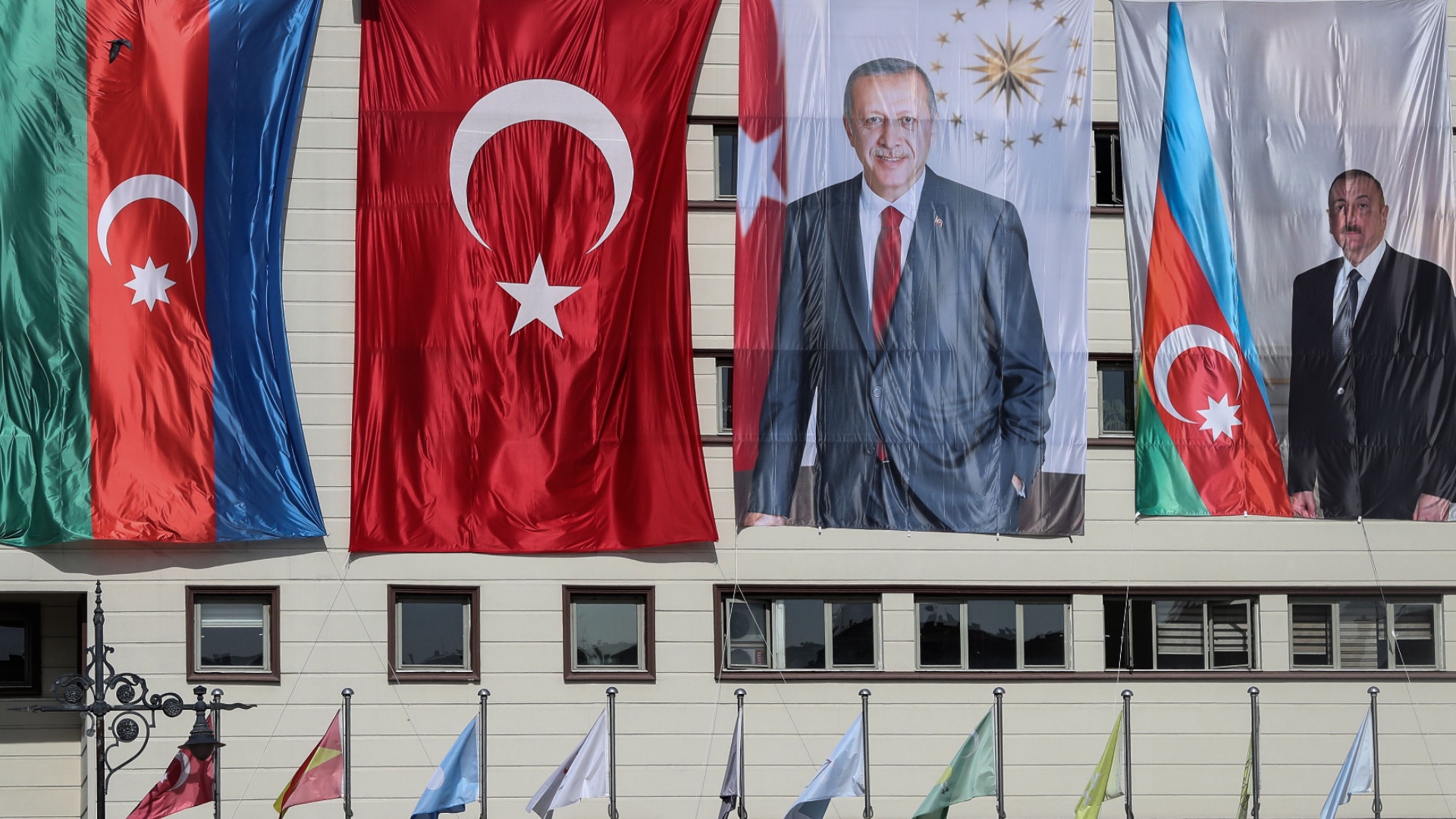
The new agreements were signed following substantive negotiations on several security-related issues, including Iran and Turkey’s growing influence.
However, unlike their Arab counterparts, both Ankara and Tehran denounced the Abraham Accords, labeling them as a betrayal of the Palestinian cause and a “dagger in the back of Muslims.”
Nevertheless, media reports in December 2020 revealed that Turkey and Israel had established a secret negotiation channel to prepare a roadmap to further bilateral relations.
The fact that Tel Aviv and Ankara’s reconciliation process emerged just weeks before newly elected US President Joe Biden was to assume office suggests that Ankara was keen to send a positive signal and prevent any possible political isolation under the new administration.
The ongoing saga related to Turkey’s purchase of the Russian S-400 missile system, together with Ankara’s increasing political and military influence in Libya, Syria, and more recently in the South Caucasus region, where Turkey openly supported Azerbaijan during the Nagorno-Karabakh war, suggest that the new Biden administration could take new steps, possibly including sanctions, against Turkey.
The 44-day war resulted in a victory for Azerbaijan, with the country using both Israeli and Turkish-made weaponry, particularly combat drones, which proved to be a gamechanger on the battlefield. Nearly all Israeli military supplies to Azerbaijan during the war came via Turkey’s territory, with both Israel and Turkey playing critical roles in Baku’s victory.
However, rocky relations between Israel and Turkey had put this bilateral strategic cooperation in the South Caucasus under strain. Taking this into consideration, the Azerbaijani government offered its assistance to mediate between Ankara and Tel Aviv to reconcile two of the major powers in the Middle East. Following the ceasefire agreement signed on 10 November between Azerbaijan, Armenia and Russia, President Ilham Aliyev initiated talks between President Recep Tayyip Erdogan and the Israeli government.
There are several reasons why Turkey would be optimistic about Azerbaijan’s mediation in repairing ties with Israel. Amid growing economic difficulties, any rapprochement could avoid further regional isolation at a time when rivals such as the UAE, Egypt, and to a lesser extent Saudi Arabia, have attempted to undermine Turkey’s growing military hegemony across the Levant, Maghreb and the Horn of Africa.
As for Israel, the country has focused its Caucasus policy on Azerbaijan due to its proximity to Iran – it’s main geopolitical foe – and natural resources, as Azerbaijan is one of the leading exporters of crude oil to Israel.
Warming ties between Israel and Turkey is of particular interest for Baku, especially given the emergence of a new geopolitical order in the South Caucasus after the Nagorno-Karabakh war. The deployment of Russian peacekeeping troops in the region, a Turkish-Russian joint monitoring center in Aghdam, and Iran’s maneuvers for a greater role in the post-conflict region required a new and compelling ‘deterrence factor’ for Azerbaijan.
Of greater concern for Moscow and Tehran is the possibility that formalised Turkey-Israel cooperation will give Azerbaijan additional leverage against any ‘foreign interference.’ Moreover, Baku would also seek the Biden administration’s support for any rapprochement. At the same time, Turkey is keen to reset its relations with the White House, which could well be possible through a fruitful dialogue with Israel.
Clearly, Iran and Russia will be watching the rapprochement between Ankara and Tel Aviv, and Azerbaijan’s active involvement, very closely. However, Tehran is in no rush to put neighbouring Azerbaijan – an important trade partner – in a dilemma, as it does not want to make another ‘enemy’ around its immediate borders amid deteriorated relations with the Gulf monarchies and harsh economic sanctions imposed on it.
Erdogan seeks to ease diplomatic tensions with Israel and has even proposed an agreement on the countries’ shared exclusive economic zones (EEZs) in the Mediterranean Sea, authored by his close confidant admiral Cihat Yayci. If successful, the new agreement will bring the two states’ maritime borders even closer, leaving Greek Cyprus in the lurch.
The agreement also envisages transferring the Yishai-Aphrodite gas field, the source of dispute between Israel and Cyprus, to Israeli hands. However, at this stage, it is unlikely that Israel will choose this option as a part of the reconciliation process with Turkey, as it would put Israeli-Greek-Cypriot relations at risk.
Turkey and Israel’s reconciliation process is something that could affect many actors in the region. Yet some crucial nuances suggest that the path to readjustment will be thorny, largely due to bellicose anti-Israel rhetoric in the past, Turkey’s attempts at regionalizing the current conflict, and the recent normalization process between Israel and Arab states.
Azerbaijan will therefore need to overcome any rhetorical stumbling blocks to bring its partners together. In this regard, Azerbaijan’s balanced approach to all critical actors in the region and its deep strategic partnership with Israel and Turkey make it a reliable mediator in this dispute.
Fuad Shahbazov is a Baku-based policy analyst covering regional security, defense, and religious extremism. His work regularly appears on Jamestown Foundation, CACI Analyst, The Diplomat, and other outlets.
Follow him on Twitter: @fuadshahbazov.

One reply on “Why is Azerbaijan trying to rekindle Israeli-Turkish ties?”
[…] included mediation attempts between Ankara and Tel Aviv through “quiet diplomacy,” as in the case of the 2021 diplomatic rapprochement. Moreover, the fact that Hikmat Hajiyev decided to go public regarding […]